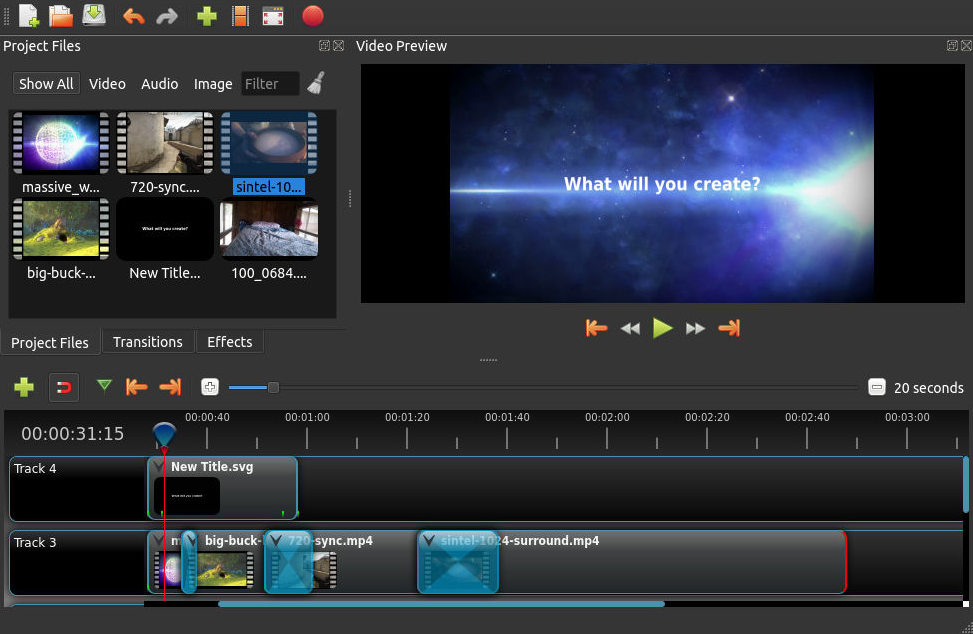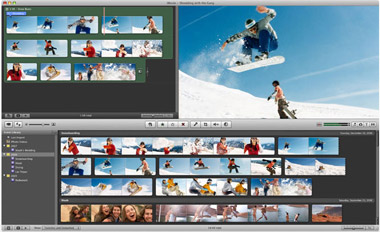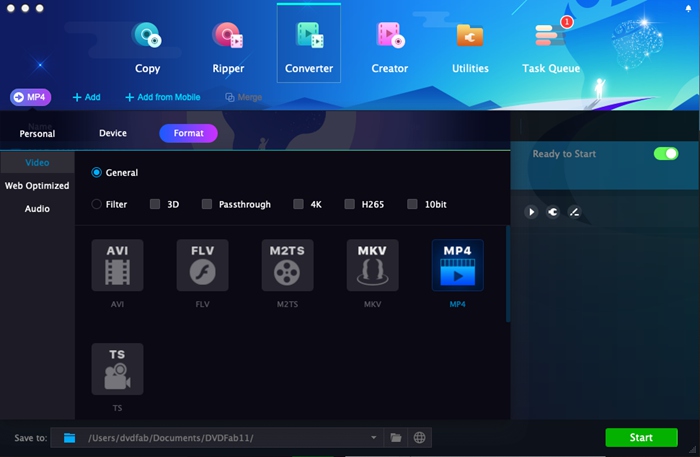- January 02, 2020
- 28 min to read
- Easy To Use Photo Editing Software For Mac
- How To Edit Photos On Mac
- Photo Edit Software For Mac
- Photo Editing On Mac
- Photo Editor Program For Mac
A comprehensive review of the best RAW photo editors on the market
Luminar has been ranked among the best photo editing software for Mac by CleverFiles and Photolemur, among others. What could be improved: Mobile users might consider a mobile-specific app for an on-the-go photo editor, since Luminar is desktop only. Best 17 Free Photo Editing Software for Windows & Mac in 2019. In an era when people like selfies and adding filters and stickers, in addition to photo recovery, there comes another ravishing feature i.e. Photo editing.Luckily, there are a number of free photo editing software for laptop and desktop, which can optimize an ordinary picture into a breath-taking panorama, and help people out with.
There are many RAW photo editors available, and they get better every year. It can be hard and time-consuming to try all of them, so we’ve tried them for you and come up with a list of the best RAW photo editors you should consider right now.
Professional photographers shoot in RAW to preserve as much detail as possible. They want high-resolution images with a wide dynamic range, natural-looking colors, and sharp details. RAW files are large files that need powerful editors. A good RAW photo editor is able to edit RAW files while preserving image quality and color accuracy.
The first criterion in choosing a RAW photo editor is how good the RAW processor is and how well it renders the RAW data. But there are also other criteria to consider, such as support for batch processing, digital asset management, preset libraries, layers and masks, and local editing tools. Practicality is also important. Consider system requirements, processing speed, the user interface and workflow, and, of course, the price.
Because RAW editors are sophisticated software that require a long time to develop, you’ll hardly find free RAW photo editors. The only free editors on our list are darktable and RawTherapee, cross-platform image processing programs with enthusiastic communities around them. Nevertheless, all paid RAW photo editors on this list offer free trials that allow you to test them before buying.
The best RAW photo editors on the market
1. Luminar 4
Released at the end of 2019, Luminar 4 is a RAW photo editor that includes AI-based technology. Yes, it provides support for most RAW file formats and all the basic adjustments you need, but it also provides content-aware automatic adjustments. Its smart features and friendly interface have already convinced many professional photographers to become Skylum Ambassadors.
Luminar’s AI-based features analyze your images and make decisions based on their contents. Luminar 4 recognizes objects and people and applies custom adjustments for different types of pictures. It includes AI-based features for sky replacement, skin and portrait enhancement, structure enhancement, general image enhancement, and adding sun rays.
Moreover, Luminar 4 comes with more than 70 built-in presets, called Looks, that provide easy access to the most popular artistic styles. You can also create your own presets and download Signature Looks designed by renowned photographers from the Luminar Marketplace.
Luminar 4 allows you to fine-tune every aspect of an image, which is great because in RAW editing, every detail counts. Luminar works with layers and masks and provides easy tools for controlling opacity and blending modes. The workflow is fluid and easy to learn, and you’ll find features such as batch processing, adjustment synchronization, digital asset management, and image rating and labeling.

Luminar 4 works as standalone software, a plugin for Adobe Photoshop and Lightroom, and an extension for Apple Photos. It’s available for Mac and Windows and costs $89.
2. Aurora HDR
Aurora HDR was the first Skylum solution for RAW photo editing and is one of the most appreciated HDR photo editors. It’s the perfect choice if you want to create images with a wide dynamic range. Aurora provides tools for bracket merging that create high-quality images without halos, chromatic aberrations, or artifacts. It also includes basic tools such as color toning, a polarizer filter, detail enhancer, and LUT mapping.
Like Luminar 4, Aurora HDR makes use of AI technology to separate noise from detail and deliver exquisite denoising and detail enhancing tools. As Aurora is a RAW photo editor, its support for layers and masks is especially useful. Also useful are the presets designed in collaboration with professional photographers, which deliver amazing effects in seconds.
In terms of practical features, Aurora HDR offers batch processing, support for most popular cameras, and the ability to run as standalone software or a plugin for Adobe and Apple products. Aurora HDR is available for Windows and Mac and costs $110.
3. Adobe Lightroom
Due to its prestigious producer, Adobe Lightroom has been the standard in RAW photo editing for a long time. But it has lost many fans since Adobe introduced the monthly subscription plan. Yes, Lightroom is a RAW photo editor that gives you access to cloud space and synchronizes your edits across all your devices. But it’s expensive, and people have started to look for cheaper alternatives. Adobe Lightroom costs $9.99 per month, which means almost $120 per year. That’s more than other software costs for a lifetime license.
For this money, Adobe Lightroom offers endless sharing capabilities, image synchronization, exquisite image management tools, and easy-to-use image editing tools. It also has many presets, and you can find more in the large Adobe community, which also offers books, tutorials, and video materials.
Adobe Lightroom is available for Windows and Mac, but check the system requirements before you buy it because it requires relatively new operating system versions.
4. ACDSee Photo Studio
ACDsee is known for its image organizing software, but its latest products show that it has become a powerful competitor on the photo editor market. Photo Studio is a complete editing solution that includes RAW processing, image editing tools, and the amazing ACDSee digital asset management.
ACDSee Photo Studio Professional 2020 supports more than 500 camera models and offers RAW editing tools such as LUTs, non-destructive color grading, lens corrections, noise and haze removal, contrast and brightness adjustments, layers and masks, selection tools, and local adjustments. It’s fast and supports many file formats, offers batch processing, and has a lot of tools for zooming, previewing, and reviewing images. In terms of the interface and image management, it’s one of the best RAW photo editors.
ACDSee Photo Studio Professional 2020 is available only for Windows. There’s also a separate ACDSee Photo Studio for Mac 6. You can choose between a monthly subscription at $8.90 and a lifetime license for $99.95.
5. PhotoDirector Ultra
With PhotoDirector Ultra, Cyberlink aims to deliver a photo editor that accumulates the functionalities of Adobe Photoshop and Lightroom at a better price. PhotoDirector Ultra supports many RAW file formats and provides AI-based tools for image retouching, layer editing, and presets.
This software is aimed at a wide variety of users, from professional photographers to the general public. It mixes powerful content-aware image adjustments with tools for making videos out of images, frame templates, and 360-degree photo editing. Delivering a wide variety of features isn’t always the best idea, however. Professional photographers are more interested in color accuracy, noise reduction, and detail preservation than in applying brushstrokes that simulate painting styles.
But despite the features unrelated to RAW editing, PhotoDirector Ultra is very good at recovering blurred images, eliminating haze and fog, and retouching portraits. It also provides image management tools, cloud storage, and additional products such as special effects and dedicated plugins.
PhotoDirector Ultra is available for Windows and Mac and costs $74.99.
6. Capture One Pro 2020
Capture One develops a RAW photo editor that supports many RAW file formats and has dedicated versions for Fuji and Sony camera users. Capture One Pro 2020 is a complete photo editing solution for all cameras, and it provides tools for image editing and management.
While Capture One Pro 2020 isn’t very easy to learn and use, once you get to know it, you’ll have full control over every aspect of your images. This software’s features range from tools for basic image adjustments (fixing exposure, color, and contrast) to HDR tools, advanced color adjustments, and presets. Essential for a RAW editor, Capture One Pro 2020 works with layers and masks and provides non-destructive editing.
Capture One Pro 2020 is a powerful photo editor even if its workflow isn’t for beginners. It provides lens and camera profiles, lens correction, high color accuracy, and tools for printing and creative artwork. All these features come with a price, however: Capture One Pro 2020 costs $27 per month. It’s available for Windows and Mac.
7. DxO PhotoLab
Like Capture One Pro, DxO PhotoLab is a complex RAW photo editor for professional photographers. It focuses on color accuracy and camera compatibility. DxO PhotoLab matches the rendering of over 60 camera models and provides optical corrections and custom lens profiles.

Easy To Use Photo Editing Software For Mac
Among its best features are exquisite color tools such as ICC profiles, Moiré removal, and the new HSL tool, more than 40 presets, haze removal based on colorimetric component analysis, noise removal that’s been optimized to process RAW files at high speed, and local adjustments. DxO PhotoLab is an editor for color perfectionists and aims to satisfy the most demanding professionals.
DxO PhotoLab provides digital asset management with all you need for organizing images in a neat interface. It’s available for Windows and Mac and costs $140.
8. PaintShop Pro
PaintShop Pro is one of Corel’s solutions for photo editing that includes RAW functionalities. Keeping to Corel’s long tradition in graphic design, PaintShop Pro provides not only photo editing tools but also graphic design tools. So if you want tools for creating artistic compositions, drawing, and painting onto images, PaintShop Pro is the best editor for you.
In terms of RAW photo editing, PaintShop Pro offers a powerful RAW processor, lens correction, HDR editing, geometric transformations, basic adjustments for image retouching, and layers and masks. It doesn’t have too many filters and presets, but it offers support for third-party plugins such as the NiK Collection from DxO and Topaz Labs plugins. This may cover the need for extra features, but these plugins come with an additional cost.
In terms of useful functionalities, PaintShop Pro doesn’t have digital asset management, but it does provide batch processing and support for many file formats. PaintShop Pro is easy to learn and has a customizable workspace. But if you don’t need graphic design tools, they’ll only slow you down.
PaintShop Pro is available only for Windows and costs $79.
9. AfterShot Pro
Another RAW photo editing solution from Corel is AfterShot Pro. Designed to compete with Adobe Lightroom, AfterShot Pro focuses on increasing processing speed while delivering high-quality images.
Unlike PaintShop Pro, however, AfterShot Pro is dedicated to photography. This means is has RAW camera profiles, lens corrections, a large library of presets, and highlight recovery for images with a wide dynamic range. It also provides efficient digital asset management and integrates with other editors. In exchange, it doesn’t have graphic design tools.
In terms of RAW photo editing, we’re more interested in color accuracy, noise reduction, and HDR tools than in drawing tools. Still, the advanced selection tools provided by Corel’s programs are always welcome for local adjustments and subtle image retouching.
AfterShot Pro is a better option than PaintShop Pro for RAW editing. It’s also more expensive, as it costs $99.99. But if you compare it with Adobe Lightroom, you’ll see that it’s worth the money.
10. Darktable

Darktable is an open-source, free RAW photo editor available for Linux, Mac / macports, BSD, Windows, and Solaris 11 / GNOME. It’s designed to be a virtual darkroom and allows you to view negatives through a zoomable lighttable.
Aiming to be more than a RAW convertor, darktable provides tools for image enhancement, batch processing, and tethered shooting. It also allows you to develop your own image processing modules and add them to the program.
For a free editor, darktable offers exquisite tools, from an optimized RAW processor that can manage large files to non-destructive edits and professional color management. It has ICC profiles, several demosaicing methods, base and tone curves, lens corrections, and tools for dithering, haze, fringing, noise removal, color, contrast, and white balance adjustments. It also offers a few filters for creative effects.
However, darktable has minimal image organizing functionalities. It does allow you to search for images by tags, stars, and labels, and it works with metadata.
11. RAW Power
Gentlemen Coders offers a RAW photo editor for Mac and iOS called RAW Power that can run as standalone software or a Photos extension.
RAW Power uses Apple’s RAW decoder to provide high-quality images. Among its best features are support for hundreds of camera models, precise curve adjustments, white balance recovery, lots of presets, and perspective and chromatic aberration corrections.
RAW Power also provides digital asset management, batch processing, synchronization between devices via iCloud Photo Library, multiple editing windows, and batch export. It comes as an extension to Apple Photos and costs $29.99
12. RawTherapee
RawTherapee is a free RAW photo editor for Windows, Mac, and Linux. It provides high-quality images with high dynamic range and uses state-of-the-art demosaicing algorithms. Although it’s open-source software, RawTherapee supports most common RAW file formats, including those from Pentax and Sony.
Among its best features are RAW histograms, adjustments for fixing exposure, contrast, detail, and color, color profiles, and advanced controls. RawTherapee also lets you save your current editing profile for later use or batch editing. Unfortunately, it doesn’t support layers, and you have to apply all adjustments to the same layer, which may be confusing.
RawTherapee has a neat workspace that allows you to find all you need in seconds. It’s intuitive, well-labeled, and has shortcuts for everything. It also provides file browsing, ratings, and color labeling, and it supports metadata. For those who want to see how printed images will look, RawTherapee runs a simulation with a specific printer profile.
13. Affinity Photo
Affinity Photo provides powerful photo editing and graphic design tools. Alongside RAW editing, it provides HDR editing and focus stacking, panorama stitching, support for editing Adobe Photoshop files, and painting tools.
In terms of RAW photo editing, Affinity Photo’s big advantage is its ability to process very large files (more than 100 Megapixels) and to offer smooth zoom at 60 frames per second. It gives you full control over the smallest details of your images and provides editing tools such as levels, curves, HSL, and exposure and white balance adjustments. All edits are non-destructive because Affinity Photo works with layers and masks. You can perform local adjustments using advanced selection tools, analyze histograms, and edit EXIF information.
How To Edit Photos On Mac
Affinity Photo provides lens corrections, noise reduction, and hot pixel removal, which is essential for RAW editing. It also provides presets and effects, including brush libraries and text and vector tools. It’s one of the best RAW photo editors for creating artistic compositions and collages.
Affinity Photo is available for Windows, Mac, and iPad and costs $49.99 respectively $19.99.

Photo Edit Software For Mac

Photo Editing On Mac
In conclusion
Photo Editor Program For Mac
We’ve tested the most powerful RAW photo editors on the market, but the final decision is yours. Choose the best editor for your needs. Consider your budget, frequency of use, skills, and artistic preferences. For example, you shouldn’t buy an editor with graphic design functionalities if you don’t do abstract photography and strong editing. If you work with large amounts of similar images, batch processing is a must. So is digital asset management when you have lots of albums and catalogs. Keep in mind that trying before buying is the wisest thing you can do.